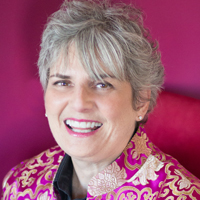
Many of my clients, once they make it through the estate planning process, ask me to refer them to someone who can help them with retirement planning. Responding to this question always gives me pause, as I want to provide the very best match. Not only is my answer reliant on the gender of my client, but it also based on their sexual preference and whether they are coupled.
Consider the Cornell study results summarized here, which I find to be applicable even 17 years later: It found that same-sex couples plan differently for retirement based on their gender and concluded that within the LGBTQIA+ community, there are several underserved segments that would greatly benefit from knowledgeable and well-informed retirement planning advice.
Mining through census data from 2011, same-sex couples reported higher education levels and median income than that of opposite sex couples. How much more? According to the United States Department of the Treasury, in 2013 and 2014, gay, male married couples made 56% more per year, or $176,000, compared to straight, opposite-sex couples whose average annual income for the same periods was $113,000.
Lesbian couples averaged $124,000 and gay married couples with children made even more, averaging $276,000 per year. Due to the timing of the most recent census in 2020, there is less current data for comparison. However, what is known is that same-sex couples continue to make more money than opposite-sex couples.
It’s been my experience that while LGBTQIA+ clients may earn more, they do not always save more. Often, this is because they lack access to financial planners they trust. I am careful to refer them to planners who will meet them where they are, get to know them, and coach them through creating a robust retirement plan that matches their needs and values.
Impact of Windsor
The U.S. Supreme Court’s 2015 Windsor decision to legalize same-sex marriage had a dramatic impact on same-sex couples. It not only gained them the rights and protections of matrimony, it also foisted onto them obligations and opportunities for which they were completely unprepared: Filing joint tax returns, accessing spousal Social Security benefits and strategies, and offering rights to ERISA assets such as pensions and 401(k) accounts.
Based on urgent requirements, connecting same-sex couples with qualified enrolled agents and accountants took precedence over planning. However, as married, same-sex couples age, their concerns and interest in retirement planning grow.
I also note that unmarried and partnered same-sex couples are mulling how to accomplish retirement. And while the Windsor decision imparted the rights of marriage to gays and lesbians, it did not obliterate the cultural differences and societal vestiges that were carried over by those who are older and came of age in a time when they could not access marital rights.
“Crafting a plan for same-sex couples means creating something that will work whether their marriage is recognized or not.”
Managing Anxiety and Mistrust
Many of these older same-sex couples chose to remain together but to not marry, and even while many did choose to marry, they continue to manage their finances and retirement goals separately and may not even share a joint checking account. Despite it’s being the law of the land for more than six years, many older gays and lesbians still don’t trust their right to marry and continue to plan and prepare as if these rights will be taken away.
Many of my gay and lesbian clients are motivated to come to me through fear and anger. They are restless and perceive that their marital rights are being examined, threatened and thwarted. To them, the stakes are high. It’s not just that the government may not support their wishes, but also that family and friends may be able to circumvent them.
Crafting a plan for same-sex couples means creating something that will work whether their marriage is recognized or not. For example, my documents for both partners in a same-sex marriage include this language:
“I am presently married. It is my intent that all of the provisions of this document that relate in any way to my spouse remain in full force and effect unless I subequently divorce, regardless of whether my marriage is recognized or is deemed to be a civil union or some other designation in the future.”
This language is designed to underscore the freedom of choice to distribute assets to a particular person rather than to rely on the current law which requires national recognition of the client’s same-sex marriage.
So, when undertaking retirement planning for same-sex couples, it’s not that their access to benefits or legal protections are different from those of opposite-sex couples. It’s that they want a belt and suspenders approach that will help them sleep at night.
Prior to Windsor, many partnered, same-sex couples invested much time and money into creating plans that accomplished through documents what the rights of marriage would have awarded them if marriage was an available option.
In my state, the law at the time same-sex marriage was made legal required that marriage automatically voided a newlywed’s most current will. The assumption was that the newlyweds would want each other to inherit their marital assets and might die before they made time to draft a new will. Imagine my clients’ shock and awe when they discovered that their recently won right to marriage also automatically negated their carefully crafted and complex estate plans.
The Details Matter
This subtlety is significant because older, same-sex couples may not want to leave their assets to each other. Estate planning for older same-sex couples typically requires a lot more drafting than for opposite-sex couples. They may each have but not share children. Sometimes they prioritize leaving money to friends, family and charities, over leaving it to their surviving spouse.
Many times, they not have co-mingled their assets and therefore, the language needs to be more explicit. Their retirement planning goals reflect these values, too. Being sensitive, accepting and prepared to incorporate these preferences into their retirement planning will help you help them to achieve and protect their priorities.
“As with any client who is motivated by fear, being receptive, responsive and accommodating will breed loyalty and will help clients relax, trust you and refer their friends.”
Given this, working with older same-sex clients means cleaning up the past, including advising clients that:
• Tax-qualified ERISA retirement plans and work-sponsored life insurance policies require the consent of a same-sex spouse in order to successfully designate a non-spouse as their beneficiary, and that new post-marital forms be completed.
• They should double check the named beneficiaries on IRA accounts. If no beneficiary is named and no will is prepared, their spouse will be the default beneficiary if the asset flows through their estate.
As with any client who is motivated by fear, being receptive, responsive and accommodating will breed loyalty and will help clients relax, trust you and refer their friends.
Estate Planning and Probate Attorney Deborah Danger, Esq., LL.M. (taxation) is the Managing Member of DangerLaw, LLC, Newton, Mass. Contact her at deborah@dangerlaw.com.







